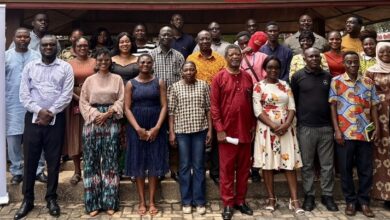Africa’s Debt Burden Threatening Climate Resilience Gains

African nations are increasingly demonstrating commitment to tackling climate change, with many developing solid policy frameworks to drive adaptation. However, a new report warns that high debt levels and weak financial mobilization threaten to derail these gains.
The Resilient Economies Index, published by the Global Center on Adaptation (GCA), highlights that while progress on policy is encouraging, implementation is lagging due to limited financing. The index measures countries’ resilience using three main pillars, which are economy, policy, and finance to assess how effectively they can adapt to climate risks.
Policy Progress Outpaces Financing
The report finds that 40 African countries scored at least 50% on the policy pillar, reflecting growing efforts to integrate climate adaptation into national planning. On average, policy performance across the continent stands at 55%, signaling strong commitment to climate-responsive governance.
But when it comes to financing these ambitions, the story changes. Only 14 countries reached the same 50% benchmark in the finance pillar, with the continent averaging 45%, a 10% gap that exposes the difficulty in turning good plans into real action.
Debt—The Silent Roadblock
According to the GCA, high debt burdens are a major factor constraining the financial pillar. Even among the top 10 countries performing well on policy, nine are struggling with significant debt. This limits their ability to secure or allocate adequate funds for climate adaptation initiatives.
The index suggests that despite having sound frameworks, these nations often cannot move beyond planning into implementation because debt repayment obligations consume much of their fiscal space. As a result, well-crafted policies risk stalling, leaving communities vulnerable to the worsening effects of climate change.
Bridging the Policy–Finance Gap
Experts argue that bridging this gap requires innovative financial mechanisms and debt restructuring strategies that can free up resources for climate action. Strengthening financial mobilization is not only about securing external funds but also ensuring that domestic systems can effectively channel resources toward adaptation.
Integrating climate adaptation into broader economic and financial planning is also critical. It ensures that climate priorities are mainstreamed across sectors, helping countries move from strategy to tangible, on-the-ground resilience.
A Call to Match Ambition with Resources
The findings from the Resilient Economies Index are both encouraging and cautionary. Africa’s climate ambition is clear, but its ability to deliver on that ambition depends heavily on access to sustainable finance.
Unless governments and international partners work together to ease debt pressures and scale up funding, the continent’s progress in policy formulation could remain just that policy on paper, without the power to protect people or economies from climate shocks.




